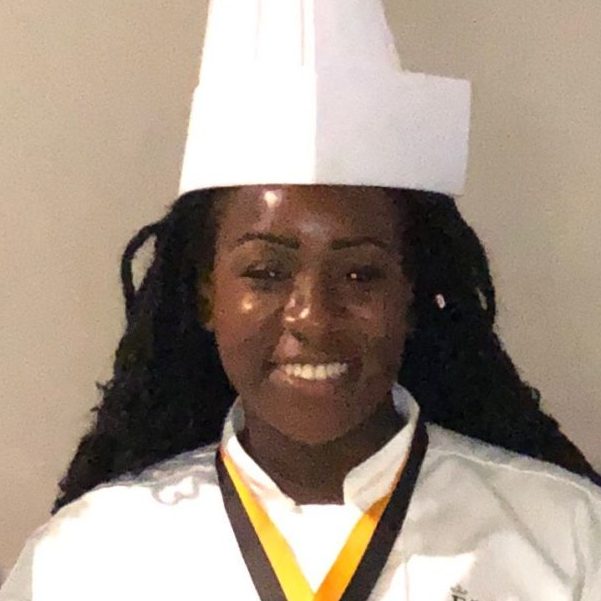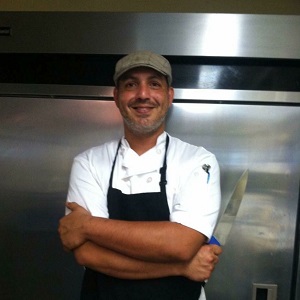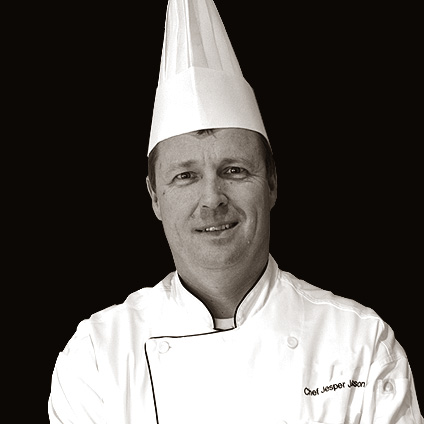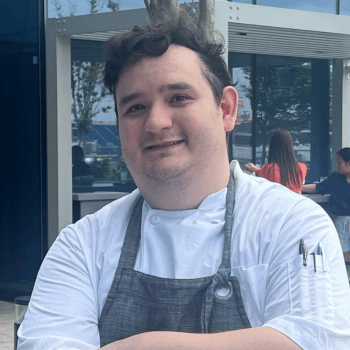If you plan to become a lawyer, your path could seem clear. First, you’d complete your undergraduate degree, and then you’d apply to a three-year law school. After graduating from law school, you’d study for the bar, and if you passed, congratulations! You’d likely be a qualified lawyer.
But in the culinary world, the path to becoming a chef isn’t as clear-cut. There’s no final exam, no set number of work hours, no one-size-fits-all education that all chefs MUST have. Becoming a chef can take anywhere from a few years to over a decade—depending on factors like education, training, and hands-on experience.
Let’s take a closer look at how long it can take to become a chef!
The Definition of a “Chef”
It may seem obvious, but it’s not as simple as it seems!
Some students may enter culinary school thinking they’ll graduate as full-fledged chefs. But that’s not necessarily the case. While education can be a vital component in the designation of chef, it’s not all that might be required. Chefs should consider a combination of education (either through school or learning “on the job”), experience, and rank to earn the title.
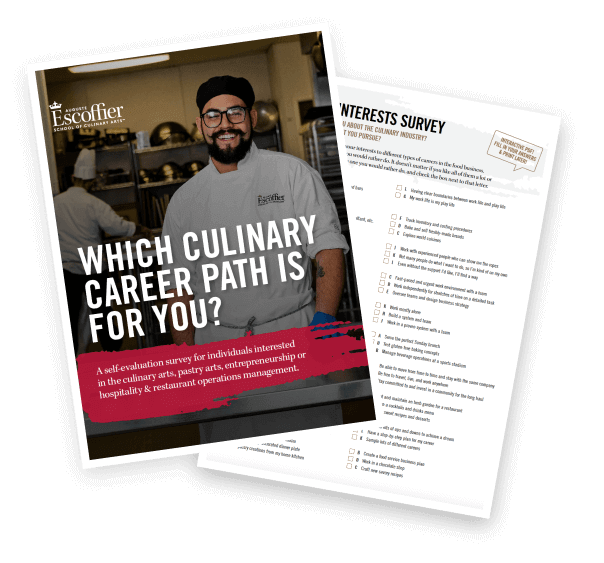
Take the Culinary Career Survey
We’ve compiled a checklist of all of the essential questions into one handy tool: career options, culinary interest surveys, educational opportunities, and more.
At the end of the day, a chef is a supervisor who exudes exemplary leadership skills. A chef not only knows how to cook, but they may be responsible for creating recipes, managing schedules, pricing the menu, and managing costs. So simply graduating from culinary school–while part of the puzzle–is likely not quite enough.
What’s the Main Difference Between a Cook and a Chef?
The key distinction between a cook and a chef is their level of responsibility. A cook can follow recipes and complete assigned tasks—utilizing basic to advanced skills to prepare dishes. In contrast, a chef, including the role of executive chef, can fully manage a kitchen and holds primary responsibility for the overarching culinary direction of the establishment.
Austin food truck owner Nahika Hillery felt quite uncomfortable being called a chef by the local press, since she didn’t have a culinary education. So she made the decision to attend Auguste Escoffier School of Culinary Arts while running her food truck to earn those credentials and feel more confident in the title of chef.
What Does a Chef Need to Know?
The executive chef is viewed as the top expert in the kitchen. They likely know how to do every job—because they probably have, at some point in their career.
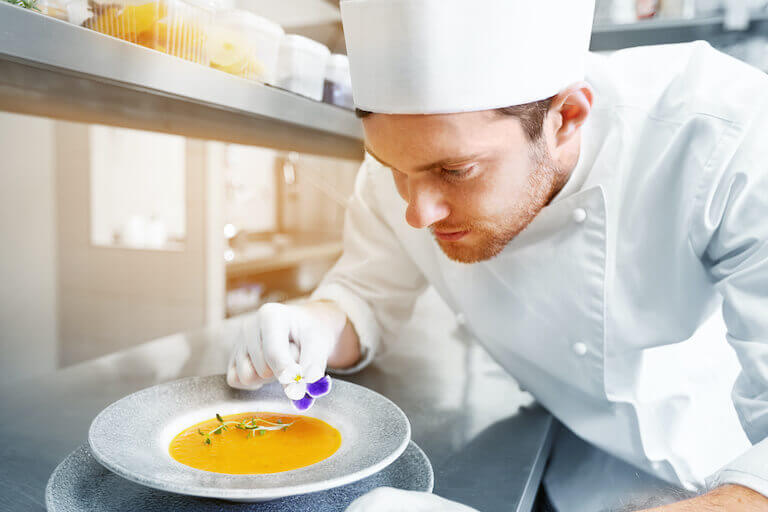
Chefs are often responsible for plating food before it reaches guests.
Chef Responsibilities
A seasoned chef will likely understand the menu backward and forward since they probably created the recipes themselves. This means they may understand flavor profiles, balance, nuances of food pairing, and plating. They must know how to price and plan a menu that can generate maximum profitability, how to create a schedule that doesn’t leave the kitchen over or understaffed, and they need to know all the food safety guidelines and local health codes.
So how can a chef become an expert in all these things? There’s a lot of learning on the job. But with a culinary school foundation that may cover the basics of these topics and more, students may find that the path to earning that title of chef may be a bit shorter.
The Timeline for Becoming a Chef
Since there’s no one-size-fits-all approach to a culinary career, every path to the role can look slightly different.
According to this study from the International Journal of Contemporary Hospitality Management, to become a chef, a unique “two-steps” trajectory could be required. This involves education and establishing oneself, followed by moving into a top chef position that likely involves innovation and treating work as an “experience.”
With that in mind, a pathway to becoming a chef could involve…
Starting With a Culinary Arts Degree or Diploma
An ideal place to start your culinary career could be by obtaining a degree or diploma from an accredited culinary school.
At Escoffier, you can complete one of our diploma or associate degree programs in just 60 weeks. That timeline includes–depending on your program–one or two six-week industry externships, where you can get valuable hands-on experience in a commercial food establishment, such as a restaurant. This can be a prime opportunity for rising chefs to not only cook professionally but network with industry leaders who might provide mentorship or future employment. Also, some externships are paid, so students can start making a living while bettering their craft.
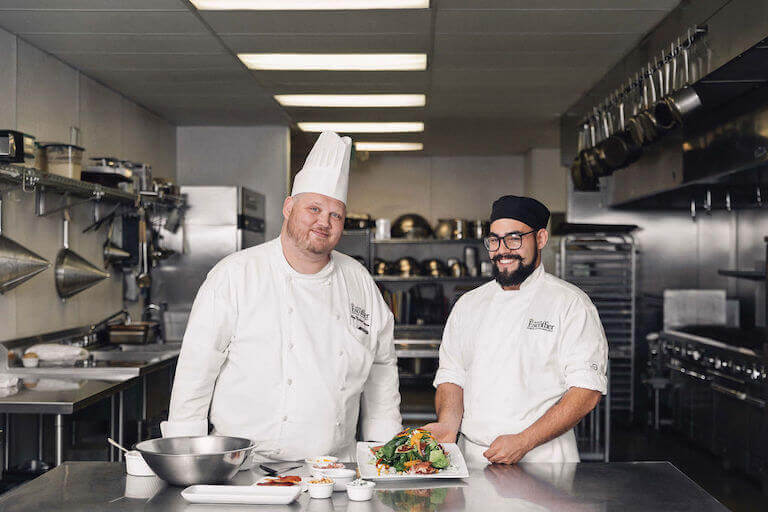
Chef Instructor providing mentorship to a culinary arts student.
Shai Fernandez, an accomplished Escoffier Culinary Arts graduate, embarked on an accelerated journey into the realm of fine dining, courtesy of the externship program. Collaborating closely with Career Services, he secured a coveted externship opportunity at Yolan, an Italian fine dining establishment nestled in the heart of Nashville, Tennessee.
His culinary odyssey started as garde manger, where he showcased his prowess on the cold station. Then he transitioned to the entremet station, composing protein dishes. With relentless diligence and hard work, Shai’s capabilities earned him the privilege of curating amuse-bouche renditions—crafting single bites for guests before the dining experience.
So in just six short weeks, Shai experienced an expansive range of chef duties to put on his resume!*
Securing Your First Culinary Job
Either while you’re in school or shortly after you graduate, you can secure your first job in a professional kitchen. If you’re new to the industry, you may start in an entry-level position. New cooks often begin as prep cooks where they can chop, weigh, and prepare ingredients for the line cooks to turn into finished dishes.
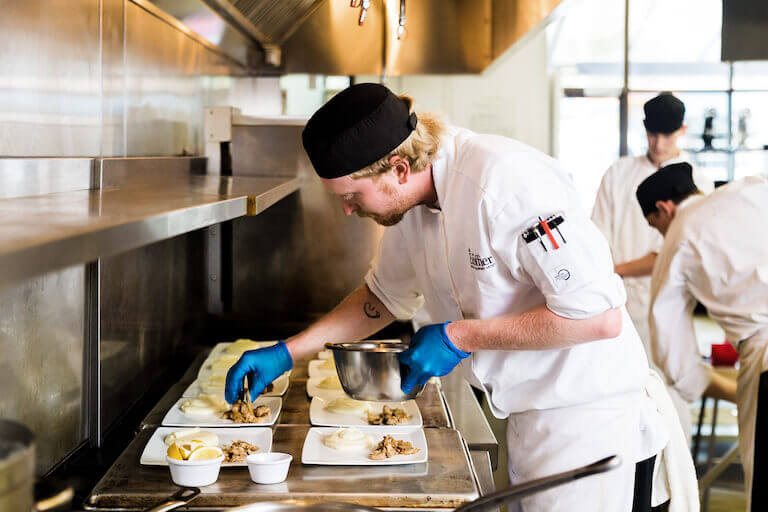
Culinary school can prepare students to become a chef.
Along with externship placement, Escoffier students can get help in their job searches throughout their careers with job search assistance from our Career Services staff. This team offers industry referrals, resume writing and interview assistance, and access to job listings.
Once you have that first job, it’s time to work your way up!
Climbing the Ladder
For many prep cooks, the next big step can be becoming a line cook.
Depending on factors like your education, performance, and job availability, you could get your first promotion in a few months, or it could take a year or two. From there, you could be promoted to lead line cook, supervising a station, or managing the line.
Becoming the Right Hand
On the path to becoming a chef, most culinarians make a stop as a sous chef.
So are you a chef now? While the word “chef” is in the title, and the rest of the staff may respond, “Yes, chef,” when you ask them to do something, you’re still not really the boss.
The sous chef is viewed as the executive chef’s right hand. They often make schedules and run the day-to-day affairs of the kitchen. It could take as little as three years to become a sous chef, or as many as seven (or more!)
Moving Into an Executive Chef Role
Once you’ve been a sous chef for a few years, how do you take that last step?
Some sous chefs can get promoted to executive chef. But that means the existing executive chef has to vacate the role. If your boss is firmly entrenched and doesn’t plan to leave anytime soon, you may need to think outside of the box and seek out a new kitchen to make the leap from sous chef to executive chef. Or if you’re entrepreneurially minded, you could open your own restaurant, food truck, or ghost restaurant where you’re calling the shots.
Whatever path you take in your culinary career, you may find—like many chefs before you—that a culinary education could help you to get a head start, add credibility to your name, and may advance your career more quickly.
Education Can Be Your Next Step
As you can see, there are several factors that can affect how long it takes to become a chef, so discerning an exact timeline could be challenging. But one thing is certain: starting now with an education might be the best way to begin!
Escoffier’s degree and diploma programs are designed to teach you culinary essentials and help prepare you for the industry. With flexible program options, you can make a big leap forward in a short time. And with Financial Aid resources available to many students who apply and qualify, and Culinary Arts programs available fully online–with in-person, hands-on industry externships–it’s never been more affordable** or accessible to start working toward becoming a chef!
CURIOUS ABOUT CULINARY EDUCATION? READ THESE ARTICLES NEXT:
- How to Earn a Culinary Degree From Home
- How You Can Get Into Culinary School
- What to Expect When You Attend Cooking School
*Information may not reflect every student’s experience. Results and outcomes may be based on several factors, such as geographical region or previous experience.
**Consider your situation and resources to determine what is affordable and on budget, for you.

